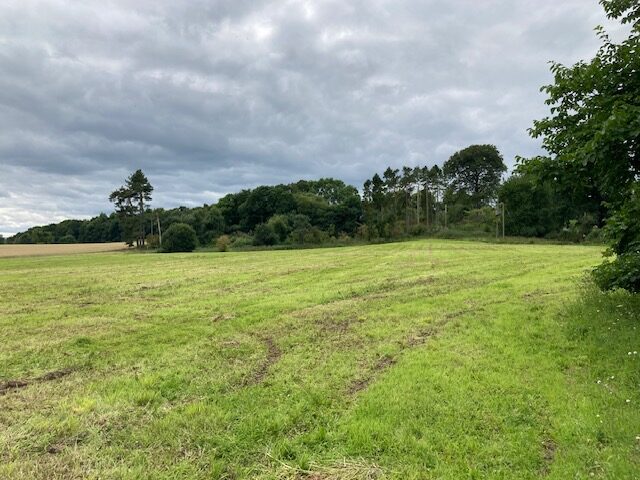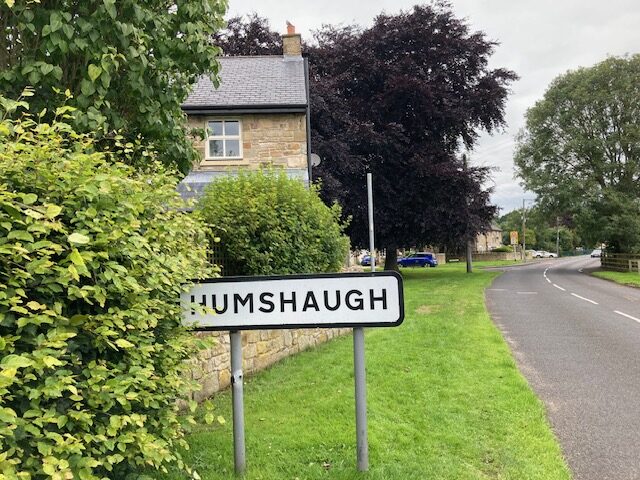
In a village hall in the Tyne Valley a group of locals contemplates the end of the world. They do so with a smile, gallows humour, and an astonishing degree of positive thinking.
For this is the extraordinary village of Humshaugh, six miles to the north of Hexham. And this is a meeting organised by Humshaugh Net Zero. The group aims to do its bit to save the planet — and therefore all of us. And they want other communities to follow their lead.
The evening’s event offers two presentations from a brother-sister combination who grew up in the village. James Nohl explains battery technology; Rebecca Nohl speaks about rapidly diminishing global resources. That’s where the end of the world comes in — but more on that later.
Humshaugh is a community with a mission: to reach net zero by 2030. The area has one of only two Green Party councillors on Northumberland County Council, Nick Morphet, and unsurprisingly he is here.
- Read more: Will Labour level up our region?
- Read more: Is home working bad for employers’ health?
Among the village’s ambitious projects is a scheme to set up a one-megawatt solar farm, which will provide enough power for 150 homes — equivalent to half the village.
Planning permission was granted last summer and the hope is that it will be linked to the National Grid by this time next year. Thirteen rows of photovoltaic panels will be installed on a one-hectare field near Lincoln Hill, just outside the village. Installation work should start in the late summer.
The next phase is securing finance for the project. Grants have been applied for and share options will be offered to the village’s 4,000 residents within the next few months.
The original idea to set up Humshaugh Net Zero emerged when a few friends got talking and decided their skills could, in different ways, help such a project. They all had some relevant experience and knowledge but mostly they just had the necessary energy and conviction to get their plans moving — despite Covid and despite numerous other problems along the way.
Weekly meetings have followed with the village updated through the website humshaughnetzero.org and regular meetings.

David Still, one of the project leaders, says: “If we are going to meet net zero as a country, local people have to look after their own local community — do whatever they can do. Yes, we have some skills, but a community can either remain dormant, or it can take action. Mainly, you just need enthusiasm and commitment.
“We hope that once we get this project done, others will come to see it and replicate it. If our neighbouring villages of Acomb, or Wall — or anyone — wants to build a similar project we will help them in every way we can. We’re certainly not competitive about this.”

Currently the regulations don’t allow a community scheme, such as a solar farm, to sell energy directly to local residents; it has to go into the National Grid and Humshaugh Net Zero, which has been established as a limited company, will then be paid by the grid for its power.
“We can use that money in a number of ways,” says David. “We will have to give a return to our investors, probably through interest payments, then we will look at other projects for the village, like insulation or a fund to help fuel poverty. The detail has yet to be finalised.”
But ultimately the group would like to be able to sell their power direct to customers. A private members bill from the Conservative MP, David Johnston, aimed to allow this but despite the backing of more than 300 MPs, it was not supported, or given sufficient time, by the Government. Labour have said they will cement the idea in their Local Power Plan, if they come to power.
But whoever wins the next election, Humshaugh Net Zero will still be a remarkably positive contribution to dealing with the impacts of climate change, which makes the presentation by Rebecca, who works for a think-tank and consultancy firm, all the harder to hear.
In a nutshell, Rebecca, tells us that we’re all screwed anyway, unless some pretty drastic things change about the way we look after the world. The problem is that at the moment we’re using the Earth’s resources at a frightening rate. It’s estimated we need 1.6 Earths to maintain humanity’s current way of life.

The first thing we need to do, says Rebecca, is to change our collective attitude towards progress. Gross domestic product (GDP) as a measure of economic success, with its requirement for constant growth, has to be abandoned. Other factors like wellbeing, happiness and sustainability must be included in any future universal measure by the world’s governments.
With both our main parties still obsessed with growth of the economy, as they are in America, China, and indeed any corner of the world, that’s one hell of a super-tanker to turn around. And, at the moment, you can’t even hear the brakes coming on.
On the world stage, Humshaugh may be a small insignificant village in Northumberland, but in the residents’ modest village hall there is hope that from small beginnings something much bigger can still be attained. Let’s hope so.












1 thought on “End of the world? Not if we can help it, say villagers of Humshaugh”
Real pity Rebecca Nohl isn’t standing as a candidate in North East’s mayoral election. She’d definitely have my vote.
She talks so much sense, including:
“Gross domestic product (GDP) as a measure of economic success, with its requirement for constant growth, has to be abandoned. Other factors like wellbeing, happiness and sustainability must be included in any future universal measure by the world’s governments.”